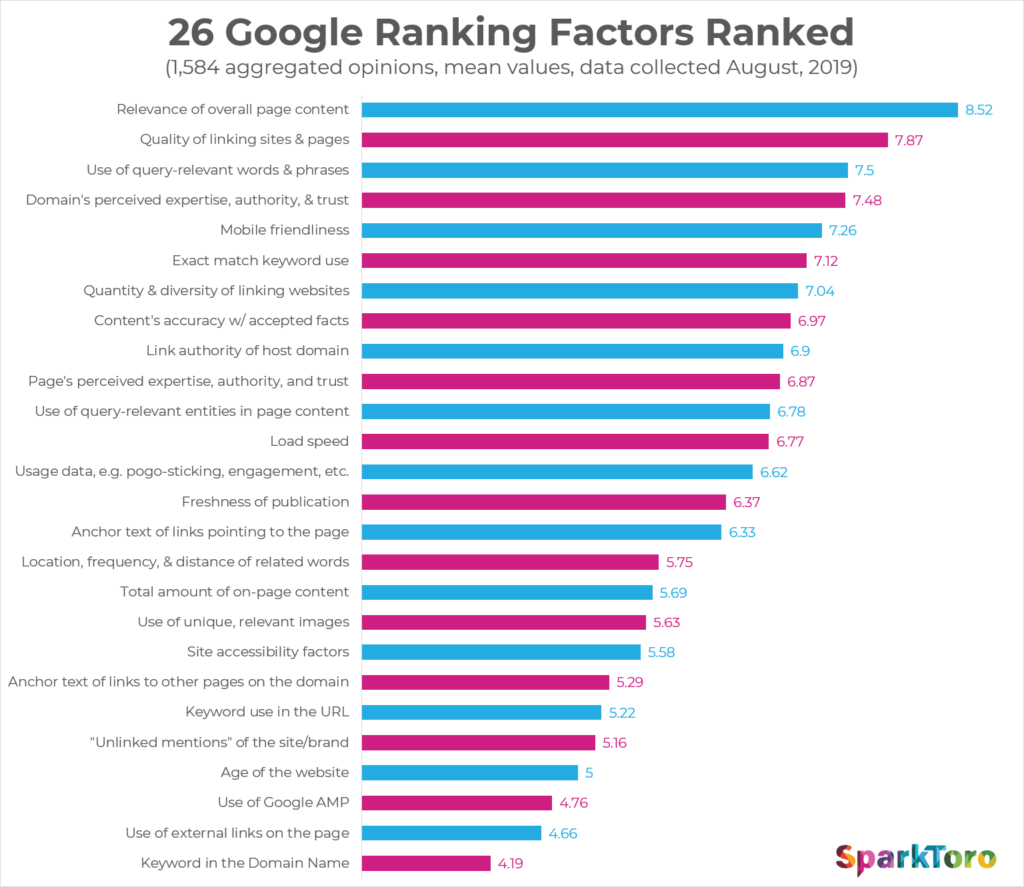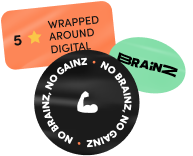Are you struggling to rank higher on Google even though you’ve double and triple-optimized everything under the sun? If you’ve mastered the content on your page the problem might be your off-page SEO… or lack of it.
Nowadays, search engines primarily use complicated algorithms to determine which pages they should index and how these pages should be ordered on the results page. You can think of SEO as the language for search engines to get more information about your site.
That said, search engine optimization is divided into off-page and on-page SEO. So then, what is off-page SEO and how do you do it?
Let’s find out!
WHAT IS OFF-PAGE SEO EXACTLY?
Primarily, off-page SEO (sometimes called off-site SEO) conveys any action taken outside of the site that impacts rankings on the SERPs (search engine results pages).
To truly understand off-page SEO we need to make sure we grasp on-page SEO so that we can compare the two areas of optimization. At its most basic level on-page search engine optimization is what you control. This includes where you put content and graphics, how the page looks, and how fast it runs. While control over content and page functionality is the name of the on-page game, it’s not always true for off-page SEO.
For example, if someone contacted you and wanted to link to your website, that would be off-page SEO. You haven’t done anything to change your site during the process. You’re just letting someone else add your link to their page. Of course, they could link to your site whether you like it or not thereby potentially impacting your ranking performance. (Of course, in such a scenario you could disavow the link, but my point about control still rings true.)
That said, there are some exceptions to the rule. Some off-page factors are essentially controlled by you, such as Google My Business. For now, just realize that the off-page game is fundamentally different from on-page SEO due to the limited amount of control you have.
WHY IS OFF-PAGE SEO SO GOSH DARN IMPORTANT?
Google and other search engines take a lot of off-page factors into account when they decide where and if to rank your web pages. While there are various elements that comprise off-page SEO, links are by far the most important. As such, for our purposes here we’re going to heavily focus on links as an off-page factor. As a result of Google’s heavy consideration of links you almost can’t rank well on SERPs based on your content alone.
Let’s actually take a look at links for a moment to help drive home how important off-page SEO is. Links are kind of like recommendations. A site owner will link to your site or content because they think it is valuable, interesting, and unique. You’d like more of these great “recommendations” over time. These “recommendations” are a major part of your ranking power.
There are a huge number of opinions out there as to the weight of off-page elements and backlinks as true ranking factors. That said, SparkToro (Rand Fishkin) put out a nice study that gives you a general sense of the power of links:

Backlinks Help to Establish Authority
Search engines are all about trying to get the best results for the user. Google and other search engines, do this with both on-site and off-site SEO factors. One of these factors is establishing your site authority via off-page SEO. This is done via backlinks.
You might ask yourself, how will my site gain more authority with backlinks? Well, the more links you get to your site (let’s call the links “recommendations”) the higher your site will rank for search terms (all things being equal, of course). Site owners are not recommending just any site, they link to valuable sources. This is a big part of how Wikipedia came to be such a high authority website (i.e., by accumulating so many backlinks).
As such, social media linking can also be beneficial. If there is a buzz about your page, or it has been bookmarked, it shows that more people are utilizing that information and that it should be readily available to the world.
With that said, via a solid backlink profile you can increase your rankings, which means you get more traffic to your site. When that happens, you are probably going to get more exposure for your brand/company. Websites in the top three positions are going to have more visits, more links, and more social media features. It’s a never-ending event sequence where one thing leads to the next which leads to the next and so on.
Of course, the stronger your backlink profile the better you can also establish your website as an authority figure (in the eyes of Google). Consumers are going to trust you because Google trusts you and has ranked you higher than other sites. Simply, Google’s trust begets the user’s trust!
Pro Tip: Put yourself in the user’s shoes: When you search for something, do you go to the 10th page of the results? No! You probably don’t even scroll down to the fifth or sixth link on the first page. Instead, you click on one of the first ones because you feel that those are going to be the most relevant to you. Those are going to be the substantial sites you can trust. Ranking well equals trustworthiness!
TYPES OF BACKLINKS YOU CAN EARN

As we said, building backlinks is important for off-page SEO because search engines can use links as indicators to determine the quality of the content. Websites with a lot of backlinks of high value (i.e., links from authoritative sites) are probably going to rank higher than an equal site without any backlinks.
That said, there are different types of backlinks you should be aware of. In fact, you’ll find there are three primary types of links:
- Natural Links: These are given without you having to take any action. For example, if you are a food blogger, you might add a link to your post pointing toward your favorite farms. In such a scenario, you just built a natural link to this farm site. The farm didn’t have to do anything to get that link.
- Manually-Built Links: These are attained using deliberate activities for link building. As an example, you may get influencers to share the content you create or ask customers to link back to your website.
- Self-Created Links: You can get this type of link by adding your backlink to a forum, online directory, press release, or blog comment signature. Sometimes, these tactics can lean a bit toward black-hat SEO. Therefore, search engines tend to frown upon them. Tread lightly if you choose to go this route.
In any case, you should keep in mind what Google’s John Muller has said, “Links Do Not Expire But They May Become Less Important Over Time.” Meaning you have to keep building new links and make sure the old ones are still relevant.
Here, see what John said for yourself:
Most of all, you should focus on which efforts give you the most link equity. When trying to build your link profile think about the:
- Relation to the linked site’s topic and the site itself
- Freshness of the link
- Anchor text used
- Trustworthiness of both sites
- Popularity of the linking site
- Authority of the linking page and domain
- Number of other links on the linked page
HOW TO EARN NATURAL LINKS TO YOUR SITE?
Since natural links are so important to your off-page SEO, you are bound to wonder how to earn them. On top of that, you also have to consider which natural links are going to be more advantageous for you.
For example, it doesn’t really matter how many links you have driving to your website. Instead, you have to pay close attention to where they’re coming from. A link from a poor-quality blog isn’t going to have the same value attached to it as a link from a popular newspaper, online magazine or a large corporate site that is relevant to your niche. These are examples of highly authoritative sites, and such links will be challenging to get…
The best links come from trusted websites that are related to yours and have relevant anchor text that naturally drive traffic to your site.
Best Practices for Earning Natural Links
Straight from Google, the only ‘good’ links that point to your site are natural. You already know that this means a blogger or website owner chose to add your link to their content. It almost seems like an impossible feat considering how much content is out there and how hard it is to stand out.
Here then are some of the best practices to consider:
#1- The Content Itself :
Create meaningful content that might actually get people to link back to your site. Offer something of unique value. Something that you can offer that most other content creators can’t. This might sound like simple advice, but finding your niche is harder than it seems. Some examples of unique content are:
- Data/Research
- Interactive content
You could go another route with this and entice sites to link to you via ‘ego bait’. Ego bait is when you mention other brands and bloggers to get them to link back to you and there is no shame in doing as such!
#2 – Mentions and Networking:
Tie any mention of your site to a backlink. Meaning:
- If your brand is mentioned on someone’s page, ask the site owner to actually link back to you. (By the way, mentions have their own value, so even if you’re not successful in getting that link, a mention is still a win!)
- 404s – follow your broken backlinks!
- Cooperate with journalists and provide them with valuable content for their articles.
- Participate in events, conferences, and webinars, if you can. These are great ways to build relationships and relationships often end up in links!
- If suitable for your niche, you can contribute to a scholarship for a related organization. (This can bring in some coveted ‘.edu’ links, increase traffic, and is just a good look for your brand.)
Still, and I know I already said this but the best way there is to attract links is to ensure that you are creating engaging, link-worthy content that other people want to read and link to. I can’t emphasize that enough!
As an aside, guest blogging is another possible way to garner links that you may want to consider. Though this is considered a ‘gray area’ when it comes to natural link building, it is a valid way to get some links back to your website. However, you shouldn’t overdo it or only create a guest post for the sake of backlinks… as you may end up being penalized by Google. Tread carefully here… very carefully!
HOW TO RECOGNIZE BAD LINKS TO YOUR SITE?
As I said earlier, it’s not just the number of links but the quality of the sites that link to yours. You’re going to run across some bad sites that link back to you, that’s just how it goes. As normal as it is having these sites linking to you it is not a good thing. If the rankings of a site linking to your own are low (i.e., the site is not authoritative) it may mean your website will lose some of its rank juice at a minimum or end up with a manual penalty at a maximum. In other words, watch out for link schemes. Google has very good documentation regarding link schemes – you should definitely read it.
With that, you really need to do a backlinks assessment on your site periodically. This can help you identify any bad backlinks and then remove them.
#1 Via Tools: It’s possible to find free and paid assessment tools online to help you track down bad links. These tools scrape the internet to find your links in blog comments, article directories, web directories, forums, link networks, footer links, and even on sites that others marked with spam.
#2 Via Search: You may come across your links when you search for your website through Google. Just remember that some bloggers may naturally link to you. Common courtesy dictates that they tell you they are linking to you, but that may not happen. In such instances, check the site to make sure your link fits the context. If the link is out of context, looks spammy, etc., you might want to remove the link.
How?
Once you’ve found the bad links, you should look for the contact information for those low-quality/problematic sites that are linking to you. Contact them and ask them to remove the link. Common courtesy is to give them two weeks to respond and/or remove those links. If they don’t, disavow that link and upload your file to Google. (Although, the topic of disavowing links is a study unto itself as knowing when to and when not to disavow links is tricky.)
Important: Be very careful with the disavow action. You may want an SEO expert to handle this for you.
LINK VALUE & LINK ATTRIBUTES
Not all links have the same value. While link value may depend on the quality of the site, it also depends on the nature of the link. Sites use link attributes in order to tell search engines how the link they’re offering should be viewed. Should the outgoing link be viewed as an endorsement or a recommendation?
For this we have the “follow” and “no follow” link attributes. The “follow” directive, for example, is basically a site saying, ”Google, please follow this link and pass along with it all link juice related to it.” This is the kind of link you want since the more “juice” you have the more powerful/authoritative your page is.
There is a variety of link attributes to consider. For example, dofollow and nofollow are used frequently. A nofollow link is one that uses the rel= “nofollow” tag, and it is not prioritized over dofollow tags.
Generally, most links that are on the internet are followed. However, some websites use “nofollow” for outbound links. There is no real value in marking all your outbound links as nofollow. That’s because it is only natural for a site owner to link to some valuable sources from time to time.
Link attributes are extremely important when trying to build links as a nofollow link will not help your link profile (all things being equal – since Google has made the directive a hint and has said they may treat a nofollow link like a follow link.) If you’re actively pursuing and building links from a specific site, you should first make sure that the site’s outbound links are followed. You can do this by installing the Chrome extension called ‘nofollow’ which highlights any non-followed links on that page.
Beyond the follow and nofollow link attributes, Google has announced new link attributes for websites owners:
rel=”sponsored” for any time your links are paid
rel=”ugc” for any time the links are from user-generated content (like a blog comment that contains a link)
In any case, these new link attributes are also considered to be “nofollow”.
OFF-PAGE SEO: ERR ON THE SIDE OF CAUTION
Both off-page and on-page SEO are essential for ranking well on the SERP. If you want your search engine optimization campaign to be successful, you can’t ignore one form of optimization over the other. That said, off-page SEO can be dangerous. Those who are contemplating link building and off-page SEO may find it’s best not to take the easy way out. Instead, try to get natural links or hard-to-obtain links from highly authoritative sites. Usually, if it’s hard to get a link from a website it’s going to have more value.
In the past, it was quite easy to get hundreds of links in order to produce high rankings. Since then Google has caught on and is quite adept at knowing when a link profile “smells funny.” This makes it tougher to produce real results via off-page SEO. The best advice is to focus on creating a great website, learn how to promote it, and keep generating helpful content. Link building as a specific active task can be put on the backburner. Take it as it comes and give it time. With the right content, you’ll see that you will create relationships that will produce the links you need to live!









